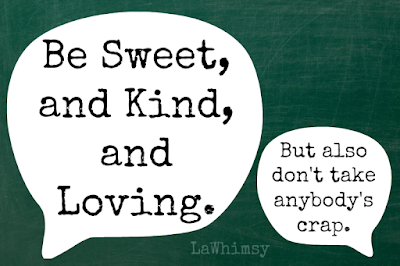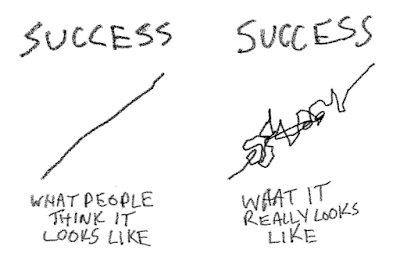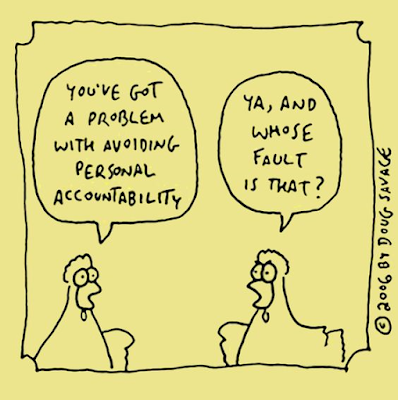Today I want to talk about something that I haven't seen pop up much during my online and social media scrolling, but something that's just as important, if not more important, as our gym workouts, track time, daily activities and mileage. This includes:
Mental Strength
How many of you know someone who is so amazing at what they do, but during a race they give in to the pressure and stress? In sports and in sports training, what we do physically to become ready for competition appears central in its importance to our preparation. A subject that can be easily overlooked in our endeavors is addressing mental strength. This fortitude is what keeps us in the game, especially when things aren't going our way; it's what makes us get up and try again every time we're knocked down (literally and figuratively). Mental strength is important long before game day; it helps to be be present in all of our training leading up to the big event. This strength is what helps us get out of bed at 4 in the morning in the train to train for that ultra, or get in those squats and put in the miles after work when we would rather lay on the couch and watch TV. I'm not saying run yourself into the ground- that's different. Rest days are important, and being able to differentiate pure exhaustion vs. a preference to continue sleeping is listening to our bodies and being in tune with our needs; this is something that also plays a central role in our ultimate success long term.
As important as mental strength is during a race, what we do and how we handle everything up to that point is priceless. We are all different, so it might go without saying that we all work on our mental game in different ways. Regardless of our differences, if you want to build mental toughness for competition, here are 10 things to work on that might help set you in the right direction.
What I Like to Work On
1. Learn how to move on and let go:
I've had plenty of days where there was a bad race, horrible training run, or a bad BMX national result, but there's no point in dwelling on them. We all have bad days, but those bad days don't define who we are, so the sooner we can learn to let go of a bad day, failed workout or set of results, the easier it becomes to focus on the positives in our lives, including not allowing a low point or standing to define us. Learning to let go frees us up and helps up continue moving forward with our goals in mind.
2. Own your beliefs:
Stand firm in what you believe, including your values and principles. Don't be afraid to say no to something that goes against those beliefs, and don't change your values just because someone else questions them. I'm not saying that you need to scream anything from the rooftops, but know your limits, know what's deep down in your core and don't sacrifice your values and principles the second anyone comes along to challenge them.
3. Embrace the "new":
Change is good. I've been trying a lot of this lately, and change IS good. I've discovered so much more about myself and my limits, as well as met some amazing and new people because of it. Trying new things is harder for some people than others, but it is just as important. If you take a minute to think about how far you've come, you might be surprised. I used to be a 2nd grader who would eat nothing but pb&j sandwiches (with grape jelly) and now I race, travel, try SO many new foods (& love them), lived abroad and am following a career path that I love. It didn't just happen overnight, and if we continue to try new things, our love of change and our "bubble" gets bigger and bigger!
4. Be KIND (but take NO crap):
This is important. In every sport there is always someone who thinks that being rude, catty, disrespectful or a bully goes hand in hand with their performance during competition. Here's a secret: it doesn't. It is entirely possible to be a kind person in life while still going hard and giving it all you can during race day. Being kind still won't stop people from disliking you, there are always competitors who will see your being a kind person as a pre-race trick, a doormat, a reason to talk, etc., but since when are we supposed to change based on what those few people think? There are ways to be kind while taking no crap, and that talent becomes a valuable strength all on its own.
5. Happy thoughts = happy life:
Have you ever noticed that when you're upset and thinking negatively, those thoughts seem to multiply and it becomes harder and harder to pull yourself out of a funk? Do you have that one friend on Facebook who seems to post nothing but negative or frustrated comments, and in turn takes your once happy morning down a rocky path of annoyance filled with eye rolling and negative thoughts? Similar to the spread of negativity, positivity can grow as well. Begin and end your day by thinking about a handful of things you're grateful for. I've spent time running in the rain when I couldn't wait for it to be over. I focused on how miserable to was, how wet my feet were, how I could be at home, dry and comfortable on the couch, and wouldn't you know? My run was HORRIBLE. After making a concerted effort to change that way of thinking, I spent a day early this week running in the rain (I got caught in a thunderstorm on my last mile) thinking about how grateful I was that my socks were still dry, that I was getting in a great workout, and that my braid was the perfect hairstyle for this unexpected downpour, and I came out of the run in a much better mood.
6. Be happy for someone else:
I can't stress this one enough - you are not the only person in this world who works hard and who deserves to win and be successful. It's a messed up point of view and it will never correlate with your success in competition. Be a good winner as well as a good loser. Once we can appreciate and be happy for someone else, we can also fully own and celebrate the times when we experience our own successes.
7. Embrace your mistakes and learn from them:
Nobody's perfect. We all make mistakes, we're human. However, those mistakes we make on the playing field don't define us unless we make the choice to let them. I've never been a big fan of ignoring my mistakes, because I feel that there is SO much I can take away from them. I've made quite a few mistakes throughout my life, and as much as I wish I hadn't made them at the time, I find that those mistakes help me get better if I can embrace and learn from them. Adopting this type of mental outlook helps us get through them more smoothly, as well as grants us a greater acceptance and understanding of other's mistakes.
8. Get in tune with your intuition:
We hear it all the time (and if you don't, you should); always listen to your intuition. This goes for choosing whom to date (or continue dating), deciding weather or not to walk down that dark alleyway or clicking on the link in that seemingly innocuous email. While the concept seems simple, getting in touch with you intuition can be one of the hardest things to learn. So many times we tend to silence that inner feeling or voice inside in favor of a much louder calling. Our intuition only becomes louder and recognized for its importance after we make choices, and subsequent mistakes, that go against it. And that's okay, because again, we all make mistakes but we can learn from them. Practice getting in touch with your intuition by taking the time to be silent. Listen to your gut feeling, pay attention to what's going on around you and don't be afraid to make decisions based on what you feel. Learning to listen to ourselves may not happen overnight, but each day we practice this we get stronger and better at trusting ourselves.
9. Take responsibility for your own performance:
Don't blame others or make excuses for what you feel is poor performance. Ultimately, we are the ones out there competing, not coaches, significant others or parents. If another competitor is faster, gets in your way or blocks you, that is just competition (I'm not talking about being a dirty competitor) and it's up to you to take that training and do your best. Once we take responsibility for ALL of our performances, we become more accepting and confident in all aspects of who we are, leading to a stronger mental game. As a side story,
I used to know someone in BMX who would loudly make excuses to her competition if she got anything less than 1st place (which was quite often). Her strong belief that something must be wrong for anyone else to beat her was not only completely mistaken, it showed me her lack of ability in understanding her own performance. In every race, the minute she would begin to seek out her competition and complain about what ails her, I knew that she wasn't feeling so confident. If we were playing poker, she just showed me all of her cards.
10. Every once in a while, take stock in your beliefs and reevaluate them
When I was in elementary school there was an important presidential election. I remember the kids in my class and the rest of the school showing up with pins on their shirts or coloring pictures supporting their favorite candidate. They were 100% for certain candidates, and their insistence, and almost anger at times, left me confused. I didn't know anything about politics at 8 or 9 years old, so how did they? It turned out they didn't either. They were mimicking their parent's belief system. They had no idea WHY they supported a certain candidate, but they were more than willing to get into loud, heated arguments on their behalf. I remember going home that afternoon and asking my parents in earnest who they wanted me to support, and they responded that they wanted me to read about each person (i.e. my own research), and make a decision for myself. Looking back, I don't think that was a common response among many parents at my school. What I'm getting at is this:
Don't blindly follow your beliefs just because they have been with you for a long time. It's fine to keep them, but spend time actively thinking about them and reevaluating your reasons for holding them. As human beings, we're constantly in a state of growth, learning and change, and just as much as we have a right to believe what we do, we also have a right to alter, tweak, or throw them out the window and start over. We take stock of our gear on race day, why not take stock of what we carry around the other 99% of the time?
Hopefully applying some of these techniques to your training and daily lives can help you on your way to a stronger mental game. One thing I like to do on top of practicing these is to actively engage- that is, live in the moment. If I am having a tough day or a race I'm not the happiest about, I try hard to remain in the moment, work on what I can and set aside the aspects I can't control. Can I work on a more positive mindset or choose how to re-fuel myself at the next aid station? Absolutely! Can I control feeling poorly or having a race in the rain? Absolutely NOT. Try not to let yourself feel frustrated over what you can't control, and remember to be grateful for the things you can control. You got this!!!!
What do you do to work on and maintain your mental toughness?























